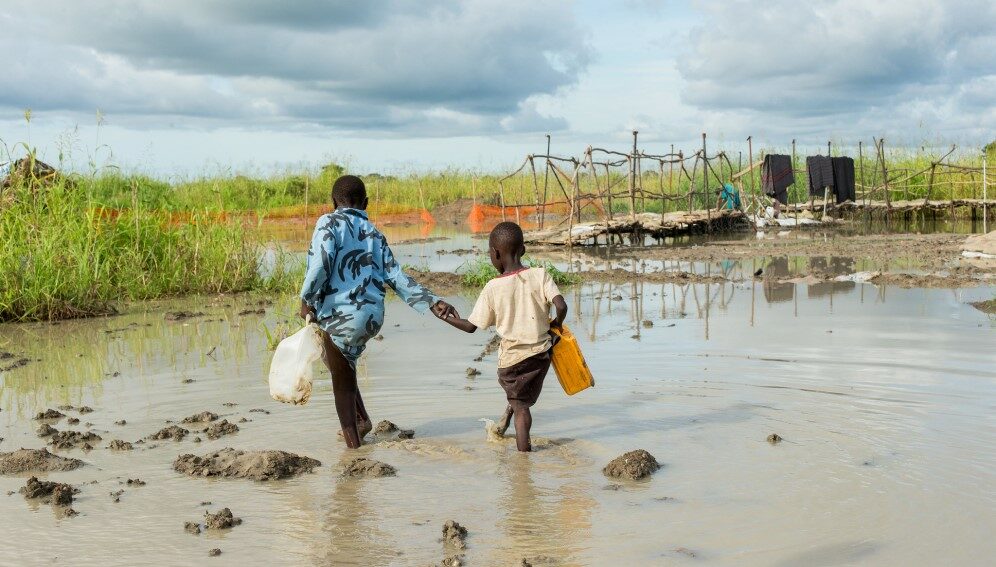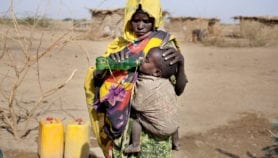19/04/22
Flooding could stifle Ghana’s health access by 2050

By: Samuel Hinneh
Send to a friend
The details you provide on this page will not be used to send unsolicited email, and will not be sold to a 3rd party. See privacy policy.
[ACCRA] Increased climate change-induced flooding could incapacitate Ghana’s transport sector, leading to about 80 per cent of the population in three of the country’s regions being cut off from accessing healthcare, a report warns.
The report, launched in the capital Accra last month (24 March), shows that flooding and intense droughts could become a common phenomenon in Ghana due to climate hazards, jeopardising the progress of the Paris climate agreement and the Sustainable Development Goals on climate change and gender.
“Within the transport sector, the analysis revealed pronounced climate risks due to flooding and landslide exposure that affects roads, including major highways, with the potential to cause up to US$3.9 billion in damages on a national scale in a likely 2050 flooding scenario – triple the estimated US$1.3 billion Ghana invested in transport infrastructure in 2019,” says the report, entitled Ghana: roadmap for resilient infrastructure in a changing climate.
“[Policymakers] can be equipped with the knowledge and tools necessary to prioritise needs and gaps through informed investments that are more cost-effective in the long-term.”
Daniel Adshead, Environmental Change Institute, University of Oxford
“As a result of expected flood damage, many districts in the Eastern, Central and Western regions may see over 80 per cent of their population effectively cut off from healthcare services, which especially affects women, who access healthcare more often than men.”
The report adds that a lack of integrated planning accounts for the impacts of climate change on road and rail construction, and inadequate integration of climate risk into feasibility studies and designs accounts for the climate risks.
The report findings were based on meetings and workshops conducted between mid-2020 and mid-2021 with key individuals and institutions in government, academic institutions, non-governmental organisations and the private sector.
The workshops and meetings were facilitated by Ghana’s Ministry of Environment, Science, Technology and Innovation and other partners such as the University of Oxford, UN Environment Programme, and the United Nations Office for Project Services.
Daniel Adshead, the lead author of the study and research associate at the Environmental Change Institute, University of Oxford, UK, tells SciDev.Net that policymakers can respond to climate challenges using the integrated analysis contained in the study, bringing together data and information on Ghana’s infrastructure sectors and its physical assets, natural land uses, and institutional and governance structures.

The roadmap identified 35 adaptation actions to build resilience in Ghana, such as safeguarding vulnerable substations against floods and landslides, resilient cooling systems for thermal and solar plants, green energy access in drought-prone districts, capacity development, and regulatory frameworks to support local renewable energy generation.
“[Policymakers] can be equipped with the knowledge and tools necessary to prioritise needs and gaps through informed investments that are more cost-effective in the long-term, including through nature-based solutions,” Adshead says.
He explains that, while the resilient infrastructure roadmap is Ghana-specific, the tools and methods used in the study are broadly applicable to other countries in Sub-Saharan Africa which face similar social, economic and climate challenges.



Peter Dery, the director of environment at Ghana’s Ministry of Environment, Science, Technology and Innovation and co-author of the roadmap, tells SciDev.Net that the findings will help improve the reliability of service provision, increase asset life, and protect asset returns.
Rosemary Balami, a Ghanaian climate activist and programmes coordinator at Cycleanics Organization, a climate change NGO based in Accra, says Ghana is vulnerable because it has high reliance on sectors that are particularly sensitive to climate change, namely energy, transport, waste and water.
She recommends, “changing our main energy sources to clean and renewable energy”.
This piece was produced by SciDev.Net’s Sub-Saharan Africa English desk.













